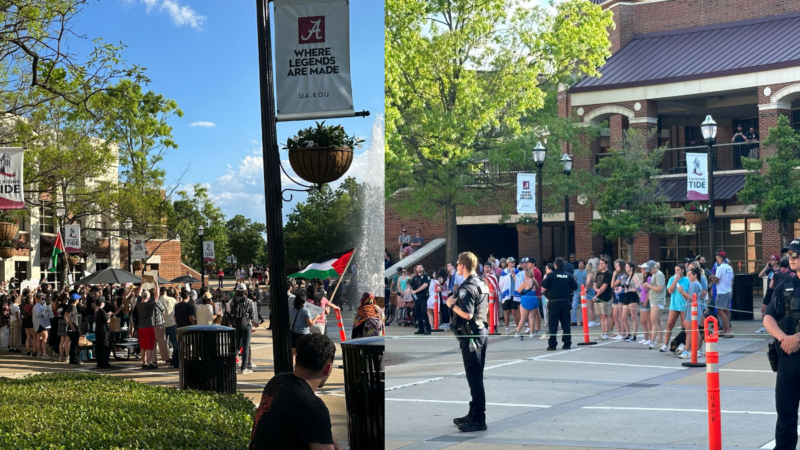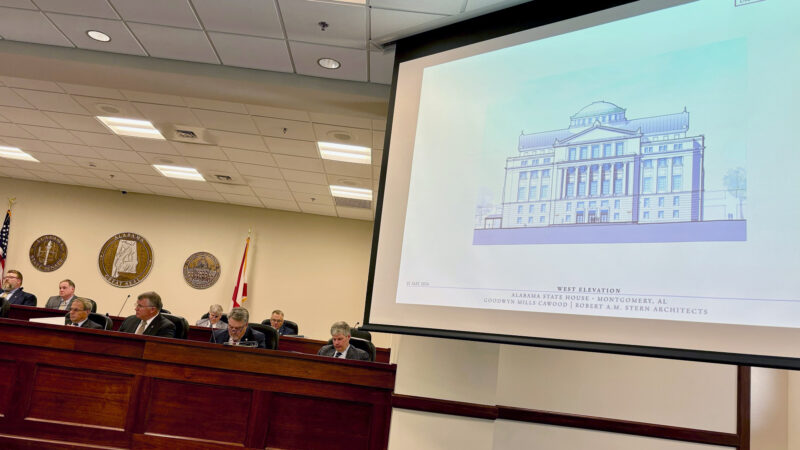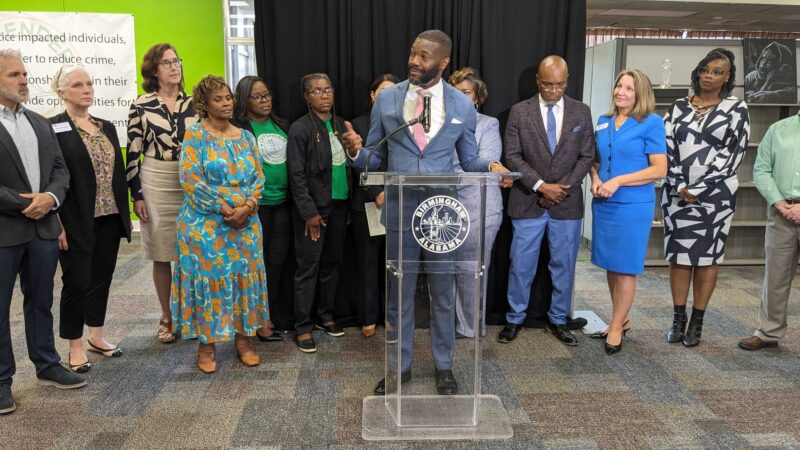Dr. Tondra Loder-Jackson, Discusses Impact of Civil Rights On Education
Birmingham City Schools have experienced segregation, desegregation, white flight and dwindling enrollment over the past 50 years. But can the system use lessons from the past to build a stronger future for its students?
Dr. Tondra Loder-Jackson, a UAB professor in the School of Education, has researched the topic and written an article entitled “The Sociopolitical Context of Education in Post-Civil Rights Birmingham.” It has been published in The Peabody Journal of Education. She has also written a book set for release in December entitled, Schoolhouse Activists: African American Educators and the Long Birmingham Civil Rights Movement.
In advance of the WBHM/Southern Education Desk Issues and Ales forum on the future of Education in Alabama, Dr. Loder-Jackson, a graduate of Birmingham City Schools, discussed her research. Here excerpts from the interview.
Research Challenges
I have to think about this topic from two standpoints – one being a child who grew up in Birmingham, but then also as a researcher. Being from the city, having strong family ties and friendships here, it means I have an affinity to Birmingham. But as a researcher, I also do have to step back and be willing to critique.
Birmingham’s Past Propels Its Future
We know that Birmingham has a strong history of Civic Capacity. And the focus has been on the 1950s and 1960s phase of the Civil Rights Movement. But when it comes to education one aspect lost on a lot of us is the role citizens played — the role that families played in transforming the school system. People like Rev. Fred Shuttlesworth, the Armstrong family, the other families that desegregated Ramsay, West End and the teachers that supported them show me that we have a long history of common citizens getting involved in democratic issues in this city.
Preparing for Changing Demographics
It’s most important that schools do right by the students who are there, irrespective of their identity. People want to see excellence. That can occur in Birmingham City Schools. I believe if we make the system excellent for the students who are currently there, that could be a magnet for those who desire diversity.
Pro-Palestinian demonstration draws counter-protest at University of Alabama
Students gathered demanding the school call for a permanent and immediate ceasefire and to push the school to sever ties with defense contractor Lockheed Martin.
A new Statehouse and related projects will cost about $400 million
The Alabama Legislative Council, a 20-member panel comprised of legislative leaders and their appointees, approved the construction of the new Statehouse last year. The panel was given an update on the project on Wednesday.
New pilot program will offer housing, resources to people leaving prison
The Birmingham Reentry Alliance will provide wrap around services to dozens of men and women adjusting to life after prison.
Alabama committee advances ban on LGBTQ+ pride flags in classrooms
The Senate Education Policy Committee voted 5-2 for the House-passed bill, putting the proposal in line for a possible final passage in the last four days of the legislative session.
A New Orleans garden paid hundreds of dollars in fees for a sewer that doesn’t exist
Galvez Garden owner Lissie Stewart has been fighting the New Orleans Sewerage and Water Board over inaccurate billing for years.
Alabama coal mine keeps digging after hundreds of fines and a fatal explosion
Following the death of a grandfather, Crimson Oak Grove Resources has left a community afraid for their homes and lives. An expert warns one resident may need to evacuate her home while she still can.







